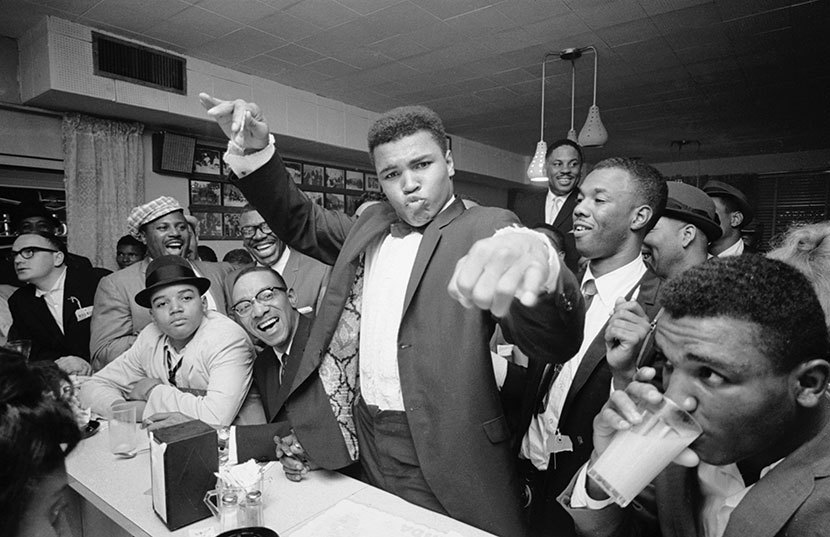Red Smith (1905–1982)
From American Pastimes: The Very Best of Red Smith

Two year ago Sally Jenkins wrote in Smithsonian Magazine on the fiftieth anniversary of the famous Clay-Liston fight of February 1964 and noted particularly that Cassius Clay (soon to be Muhammad Ali) was ill-regarded by many journalists. “I think a lot of the antagonism toward him by older sportswriters . . . was that unorthodox style, in which he leaned back instead of slipping punches,” Robert Lipsyte, who covered the fight for The New York Times, told her. “That seemed to go against their sense of tradition.” Complicating the relationship was the 22-year-old’s boastful pronouncements to the press and his antics outside the ring. “They said that Clay ‘lacked dignity,’” Lipsyte said to David Remnick in 1999. “He transcended the sports press. Jimmy Cannon and Red Smith were appalled. They didn’t see the fun in it. And, above all, it was fun.”
When Ali won the fight after six rounds, becoming the new heavyweight champion of the world, he turned to the writers, including Red Smith, and shouted, “Eat your words!” And Smith did indeed—in the column he wrote that night. “In a mouth still dry from the excitement of the most astounding upset in many roaring years, the words don’t taste good, but they taste better than they read.” For our latest Story of the Week selection, we present that column, in which Smith begrudgingly celebrates the proof of a young boxer’s mettle.



